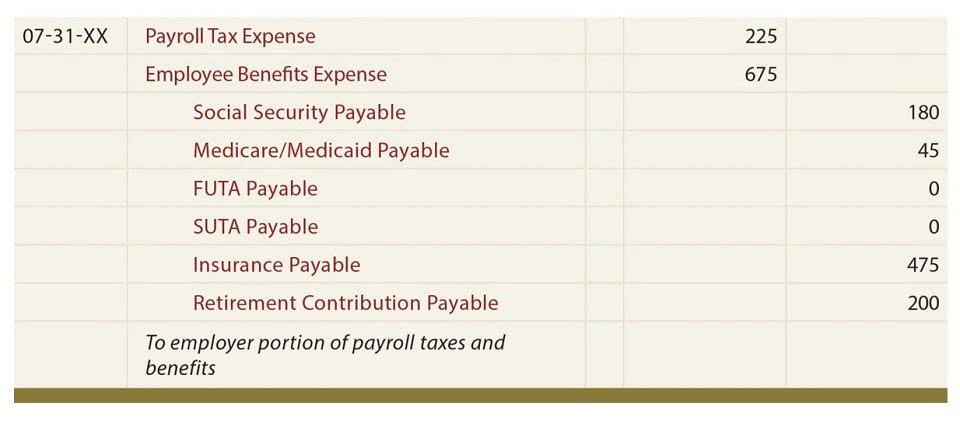
Working with nonprofits is a priority for our firm and a passion for our team members. Our firm supports many charitable organizations through monetary donations and organized group volunteer efforts. In addition, several of our partners and team members serve as board members for not-for-profit https://www.bookstime.com/ organizations. James Halpin, C.P.A., M.S., is a software developer, systems consultant, and accountant specializing in cost accounting concepts. He has more than thirty years of experience in accounting, auditing, taxation, management consulting, software development, and computer consulting.
Robert Gould, Board member
Nonprofit and for-profit organizations follow certain similar fundamental accounting practices. However, key differences lie in the goals (profit maximization versus mission fulfillment), stakeholders’ expectations, revenue sources, and regulatory compliance, shaping specific accounting needs for each sector. Review and compile your financial information on a regular basis to generate accurate financial statements. These documents provide basic financial information and progress checks about the organization and demonstrate fiscal responsibility.
Peterson Accounting, CPA
As a non-profit company, you can enjoy a suite of benefits that will contribute to increasing your annual funding, maintaining fiscal responsibility, and achieving your goals. For-profit cash flow statements will include items such as investment income, service fees, and sales. Nonprofit cash flow statements will list items such as fundraising proceeds, program fees, membership dues, and donor contributions.

Resources for YourGrowing Business
- The fund balance refers to the net worth of a nonprofit organization, resulting from the accumulated surplus or deficit of revenues over expenses.
- In other words, effective bookkeeping practices will accurately record and monitor your financial activity throughout the fiscal year.
- You will also need an accountant to audit your financial statements and help work with you on future financial plans.
- Nonprofit bookkeeping focuses more on the accountability of a company’s finances rather than on profits.
Your nonprofit’s bookkeeper must prepare regular reports for the organization’s Board of Directors that provide updated financial information. Accounting software can make this process easier and help your bookkeeper follow GAAP standard accounting principles. Nonprofits of all sizes use the following software to create and keep these reports up to date. Nonprofits face unique challenges in their bookkeeping practices compared to for-profit businesses.

This information will be used later to produce financial statements (and report your financial information to the IRS), so you should thoroughly and accurately detail each transaction your nonprofit makes. FreshBooks is a high-quality accounting program that can automate repetitive tasks and daily activities Bookkeeping Services in Lincoln and ensure accurate and reliable bookkeeping. You should also hire a financial officer or a treasurer who knows how to do bookkeeping for a nonprofit and is familiar with specialized accounting software. The basis for an accurate bookkeeping and accounting system is recording all financial transactions.
Think of bookkeeping as studying for a test—it’s the necessary first step you must take to prepare yourself for the big exam. In the same way, bookkeeping can prepare your nonprofit’s financial records and budget for tax filings, annual reports, and every other deep dive into your assets. We’ll partner with you to automate key accounting processes and create forward-looking plans that make your future feel less uncertain.

Keep in mind that promises of future donations are not guaranteed until received. Therefore, a pledge should be recorded as an account receivable upon notice of the donor’s commitment but converted to actual donations only upon receipt of the funds. After you’ve registered as a nonprofit with your state, the next step is to apply for tax-exempt status under Section 501. Where exactly your income and expenses come from and how you group them in your budget will depend on the nature of your organization.
Record In-Kind Donations
- This section regulates the tax status of charities, religious organizations, and nonprofits.
- Education nonprofits promote learning and intellectual development from cradle to grave, from preschools through post-graduate schools and adult learning programs.
- With these principles, a nonprofit organization can accurately and confidently regulate its financial standing.
- Maintaining a healthy fund balance is vital for continuity and sustainability.
- You can also use cloud-based accounting software designed for nonprofits, which are often affordable.
- Understanding criteria, accurate calculations, and prompt payments are key for individuals with irregular income.
- Considerations such as ethical use of funding and resource allocation also set nonprofit accounting apart from standard business accounting.
Nonprofits should have a clear method to allocate costs according to their programs, administrative expenses, and fundraising events, primarily to accurately report on an organization’s spending patterns. This is the part of the tax code that concerns charities, nonprofits, and religious organizations that are exempt from paying federal taxes to the IRS. The difference between the balance sheet and the statement of financial position is that, because nonprofits don’t technically have any owners, the statement of financial position doesn’t have any equity on it. The solution you decide on should also allow you to do some form of fund accounting.
Top 10 Best bookkeeping services Near Fort Lauderdale, Florida
Many accounting software programs allow you to generate financial statements automatically, such as a statement of financial position. This reduces the possibility of errors and guarantees reliability and accuracy. Of course, you can always generate financial statements manually, but this takes a lot of time and skill. These contributions have no stipulations and can be utilized freely to accomplish the organization’s diverse needs, be it operational costs, programs, or projects. The flexibility aids nonprofits in maintaining cash flow, handling unforeseen expenditures, and budgeting effectively.
- It goes without saying that you should never use your personal bank account for your nonprofit organization.
- Most nonprofits elect some kind of treasurer or financial officer to manage all of the organization’s finances.
- Invoices are legal documents and should have your organization’s logo, name, address, email, phone number, invoice number, and date.
- Kristine Ensor is a freelance writer with over a decade of experience working with local and international nonprofits.
- A bookkeeper with experience in fund accounting will create detailed fund accounting reports to help your accountant file quarterly statements and perform audits.
- For-profit entities are individuals, corporations, or partnerships that conduct business for profit.
- Bookkeepers must ensure the financial reports providing this information are correct and updated.
The research category comprises science, technology, and social science institutes. Nonprofit bookkeeping focuses more on the accountability of a company’s finances rather than on profits. Nonprofit is also based on non-distribution constraint which means that none of the earnings are distributed to the organization’s leaders. This way you can track to see how your income and expenses compare to the goals of your budget.
